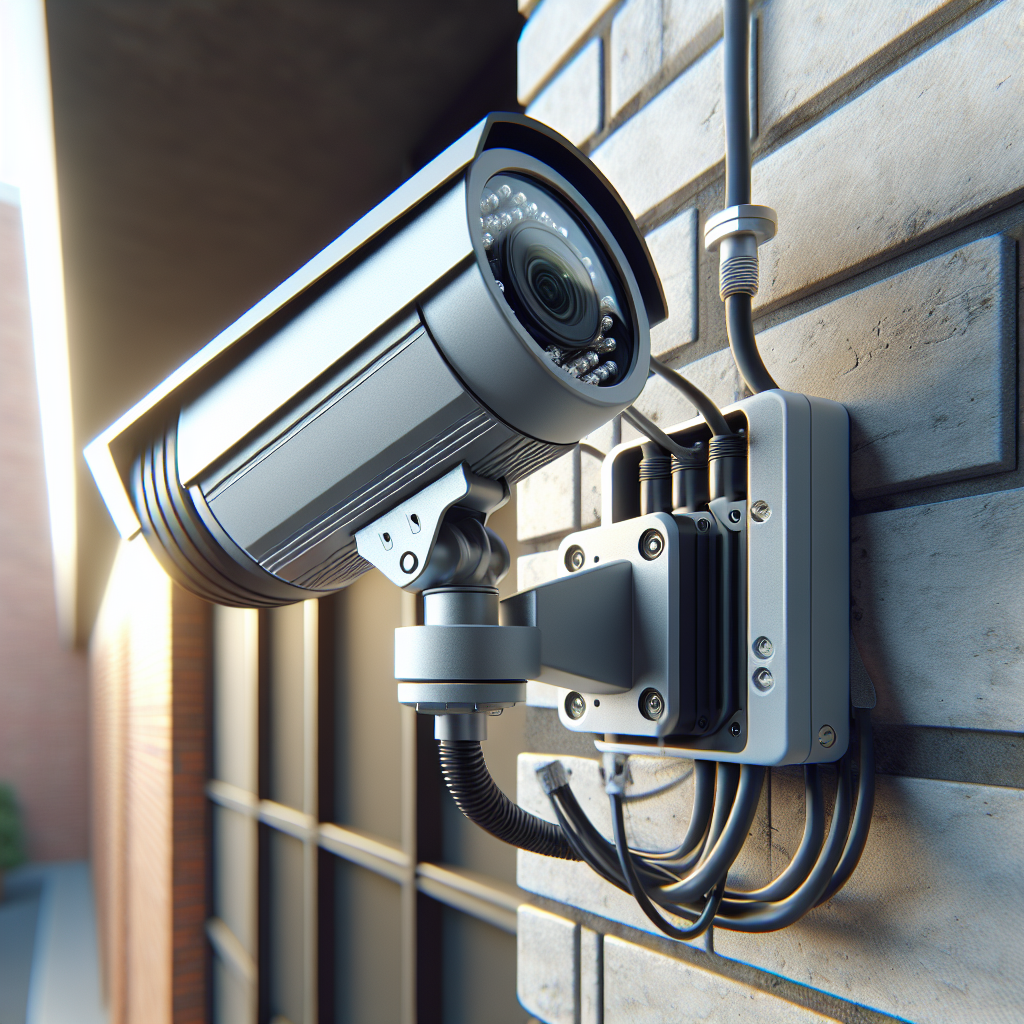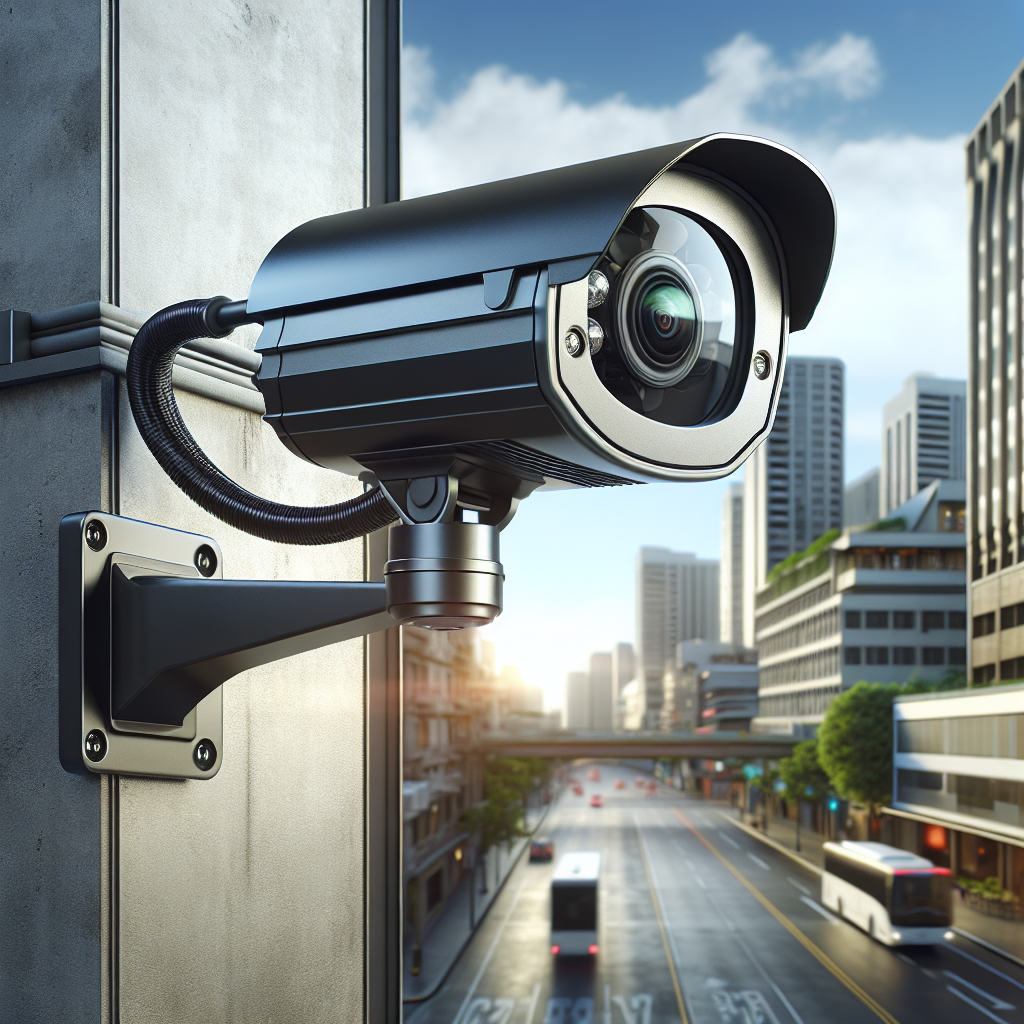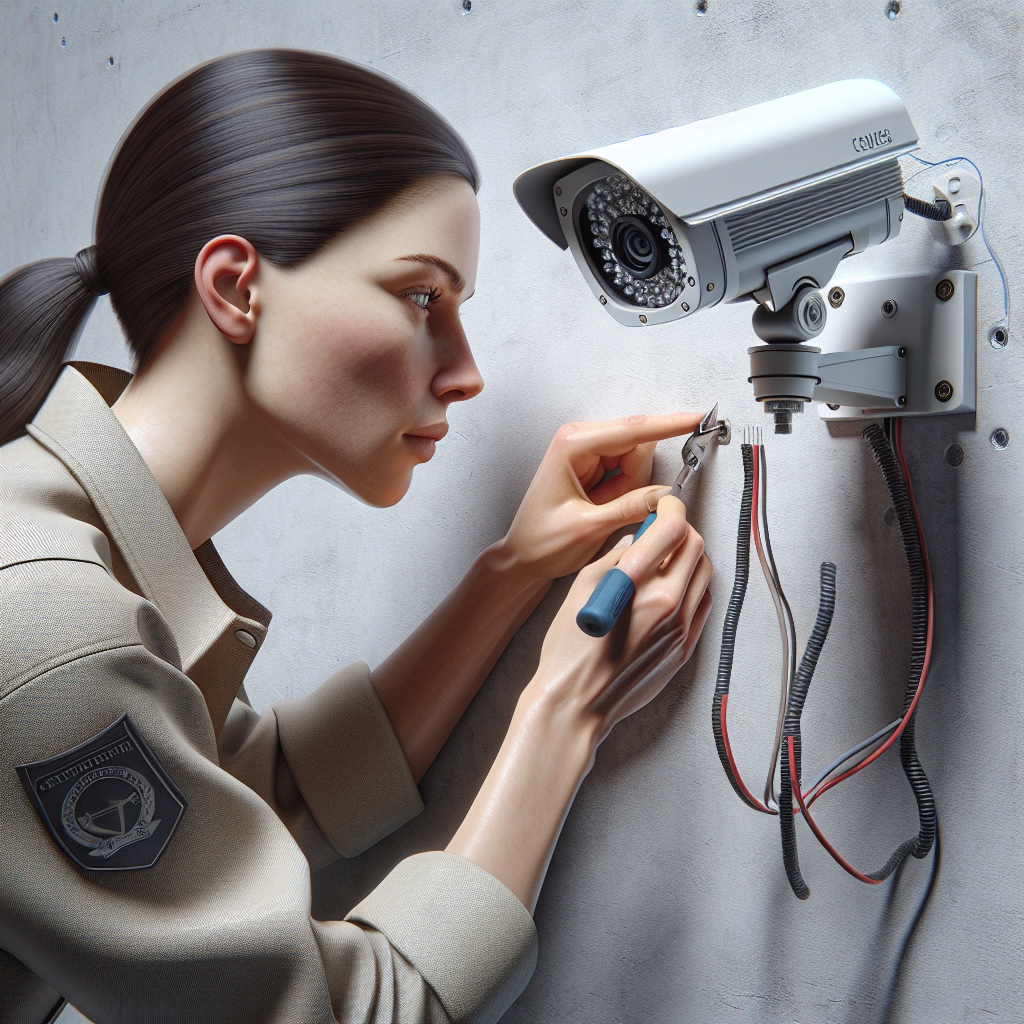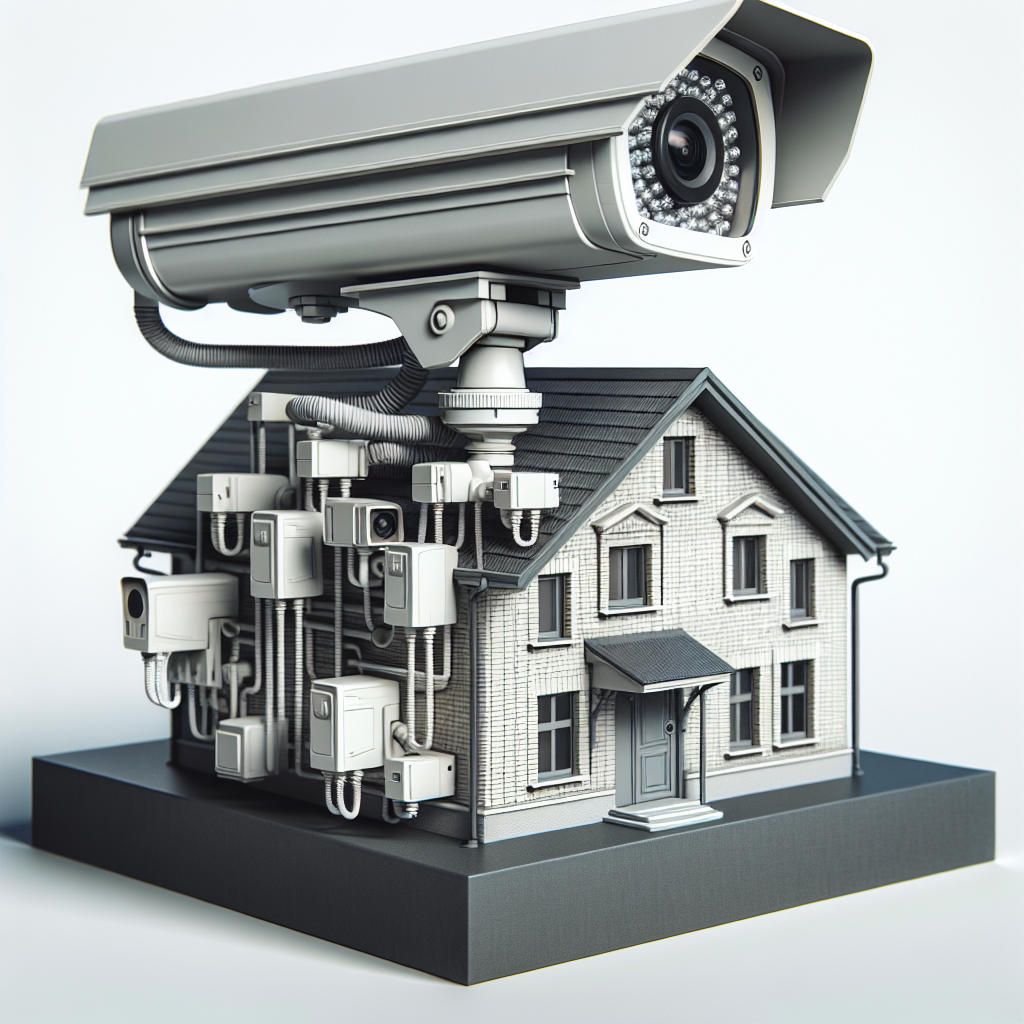In today’s world, ensuring the security of your business or home is more critical than ever. With the rise in demand for surveillance systems, becoming certified in security camera installation can open up numerous professional opportunities. This certification not only validates your technical skills but also sets you apart in a competitive market.
Security camera installation involves more than just mounting cameras on walls. It requires a comprehensive understanding of various camera types, networking, system integration, and troubleshooting. A certification program provides you with the knowledge needed to handle these tasks efficiently and effectively.
By becoming certified, you gain the confidence to tackle complex installations and offer your clients the best possible service. This certification ensures that you are up-to-date with the latest industry standards and technologies, making you a valuable asset to any organization.
Visit our website to learn more and get started today! Click here.
Benefits of Security Camera Installation Certification
Obtaining a security camera installation certification offers numerous benefits that can significantly enhance your career prospects and professional growth. Here are some of the key advantages:
- Increased Credibility: A certification demonstrates your expertise and commitment to the field, making you a trusted professional in the eyes of clients and employers.
- Enhanced Skills: Certification programs provide in-depth training on the latest technologies and best practices in security camera installation, ensuring you are well-equipped to handle a variety of challenges.
- Job Opportunities: Many employers prefer or even require certified professionals for security camera installation roles. This certification can open doors to new job opportunities and career advancement.
- Higher Earning Potential: Certified professionals often command higher salaries due to their specialized skills and knowledge. This certification can lead to better compensation and job security.
- Professional Network: Certification programs often connect you with a network of other professionals in the field, providing opportunities for collaboration, support, and knowledge sharing.
- Client Confidence: Clients are more likely to trust and hire certified professionals, knowing they have the necessary skills and knowledge to perform high-quality installations.
Investing in a security camera installation certification is a strategic move that can boost your career, enhance your professional reputation, and provide numerous long-term benefits that will serve you well in the evolving landscape of security technology.
Requirements for Security Camera Installation Certification
Pursuing a security camera installation certification involves meeting certain requirements to ensure you are adequately prepared for the responsibilities and challenges of the role. Below are the common prerequisites you should be aware of:
- Educational Background: While a high school diploma or equivalent is often the minimum requirement, having a background in electrical engineering, IT, or a related field can be advantageous.
- Work Experience: Many certification programs prefer candidates with prior experience in security systems, electrical work, or related fields. This hands-on experience is crucial for understanding the practical aspects of installation.
- Technical Skills: Proficiency in using tools, understanding wiring, and familiarity with various security camera systems are essential. Some programs may require you to demonstrate these skills through a practical exam.
- Training Courses: Completing a recognized training course is often a prerequisite. These courses cover theoretical knowledge and practical skills, preparing you for the certification exam.
- Certification Exam: Successfully passing a certification exam is a primary requirement. These exams typically test your knowledge of security camera technologies, installation techniques, and troubleshooting methods.
- Background Check: Given the sensitive nature of security work, some certification programs may require a background check to ensure you have no criminal history that could compromise your professional integrity.
Meeting these requirements is a crucial step towards achieving your security camera installation certification. Ensuring you are well-prepared will not only help you obtain the certification but also position you as a competent and reliable professional in the field.
Steps to Achieve Security Camera Installation Certification
Embarking on the journey to obtain a security camera installation certification involves several key steps. Each step is designed to build your knowledge, skills, and professional credibility in the field. Here’s a detailed guide to help you navigate the process:
- Research Certification Programs: Start by identifying reputable certification programs that align with your career goals. Look for programs recognized by industry bodies and those offering comprehensive training and support.
- Meet Prerequisites: Ensure you meet all the entry requirements, such as educational qualifications and work experience. This may include having a high school diploma, technical training, or relevant job experience.
- Enroll in Training Courses: Most certification programs require completion of a formal training course. These courses typically cover theoretical knowledge, practical skills, and hands-on experience with security camera systems. Enroll in a course that provides a blend of classroom instruction and real-world application.
- Gain Practical Experience: Practical experience is invaluable. Seek opportunities to work on real projects, either through internships, apprenticeships, or part-time jobs. This hands-on experience will reinforce what you’ve learned in training and prepare you for the certification exam.
- Study and Prepare: Allocate time for thorough exam preparation. Utilize study guides, practice tests, and online resources to ensure you have a solid grasp of the material. Focus on key areas such as camera types, wiring techniques, system integration, and troubleshooting.
- Pass the Certification Exam: Register for and take the certification exam. Approach the exam with confidence, knowing you have prepared extensively. Successfully passing the exam demonstrates your competency and knowledge in security camera installation.
- Maintain Certification: Once certified, stay updated with industry advancements and continuously improve your skills. Some certifications require periodic renewal or continuing education to ensure you remain current in your field.
Following these steps methodically will help you achieve your security camera installation certification and pave the way for a successful career in the security industry.
Best Practices for Security Camera Installation
Adhering to best practices in security camera installation ensures not only optimal performance but also long-term reliability of the security systems. Here are some best practices to follow:
- Choose the Right Camera Type: Select cameras that best suit the environment and security needs. Options include dome cameras, bullet cameras, PTZ (pan-tilt-zoom) cameras, and more. Each type has unique features that cater to different scenarios.
- Strategic Placement: Position cameras strategically to cover high-risk areas such as entry points, driveways, and common areas. Avoid obstructions and ensure cameras are placed at appropriate heights to prevent tampering.
- Ensure Adequate Lighting: Good lighting is crucial for capturing clear images. Install cameras in well-lit areas or use cameras with low-light capabilities. Consider adding external lighting if necessary.
- Use Quality Equipment: Invest in high-quality cameras, cables, and recording equipment. Reliable equipment reduces the risk of failures and provides better image quality and system longevity.
- Secure the Network: Protect the security system from cyber threats by using strong passwords, enabling encryption, and regularly updating firmware. Implement a secure network setup to prevent unauthorized access.
- Regular Maintenance: Conduct regular maintenance checks to ensure all components are working correctly. Clean lenses, check connections, and update software to keep the system running smoothly.
- Compliance with Laws and Regulations: Ensure that the installation complies with local laws and privacy regulations. Inform relevant parties about the presence of surveillance cameras and respect privacy rights.
Implementing these best practices will not only enhance the effectiveness of your security camera system but also provide peace of mind, knowing that your property is well-protected.
Maintaining Your Security Camera Installation Certification
Once you’ve achieved your security camera installation certification, it’s essential to maintain and update your credentials to stay current with industry standards and advancements. Here are some key steps to ensure your certification remains valid and relevant:
- Continuing Education: Engage in ongoing training and professional development. Many certification programs require periodic coursework or exams to demonstrate continued proficiency in the field. Stay informed about the latest technologies, installation techniques, and best practices.
- Stay Updated on Industry Trends: The security industry is continually evolving with new products, technologies, and regulatory changes. Subscribe to industry publications, attend webinars, and participate in professional associations to keep your knowledge up to date.
- Renewal Requirements: Pay attention to your certification’s renewal requirements. This may include completing a certain number of continuing education units (CEUs), attending conferences, or passing a renewal exam. Mark renewal dates on your calendar to avoid lapses in your certification.
- Networking and Professional Development: Join industry groups and networks to connect with other professionals. Networking can provide valuable insights, job opportunities, and support from peers who understand the challenges and advancements in security installation.
- Practical Experience: Continue to gain hands-on experience by working on a variety of projects. Practical application of your skills helps reinforce your knowledge and keeps you adept at troubleshooting and implementing new technologies.
Maintaining your certification not only validates your expertise but also enhances your reputation and career prospects in the security industry. Visit our website to learn more and get started today! Click here.





